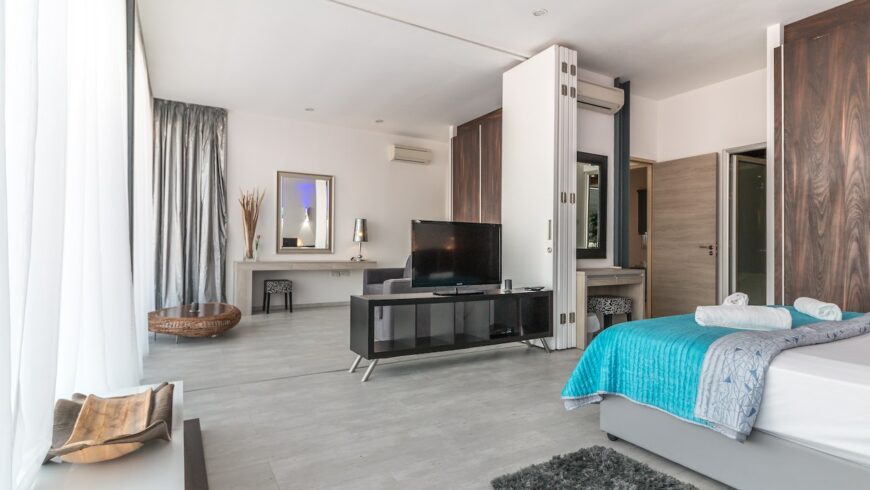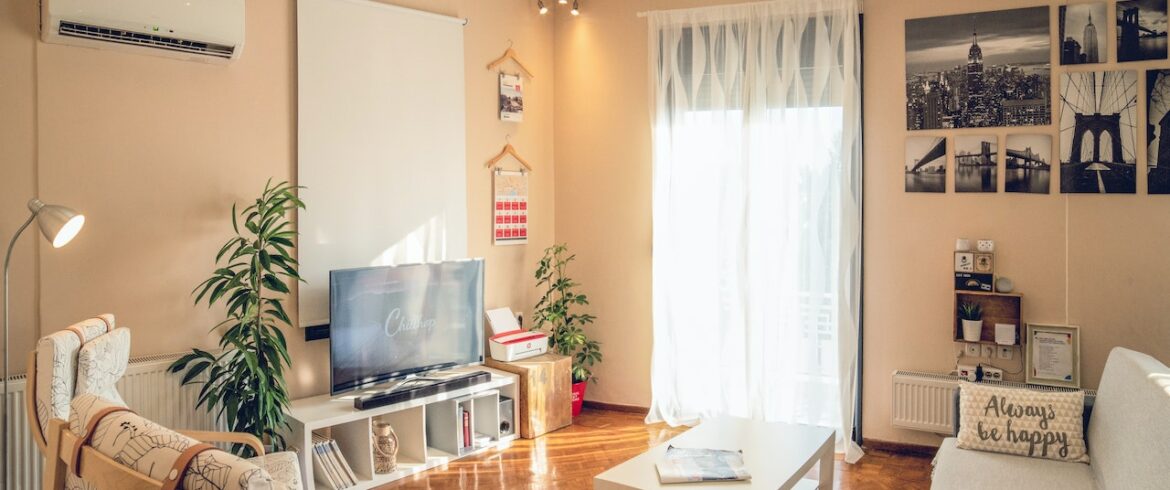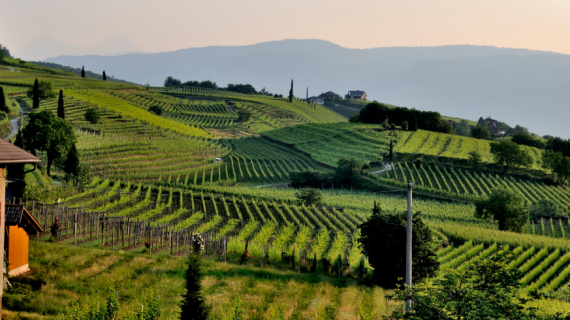In the bustling world of hospitality, the phrase challenges and opportunities of sustainable accommodations has rapidly gained prominence. The emergent concept of sustainable accommodations refers to integrating environmentally responsible practices into the hospitality sector, from eco-friendly design and construction to responsible waste management and energy use. To bring these practices closer to you, we’ve consulted experts in sustainable accommodation, and here’s everything you need to know.
Sustainable Accommodations: Challenges and Opportunities That Come With It
Embracing sustainability and eco-friendliness is not just about conforming to a trend. These concepts have grown from buzzwords into an essential ethos for businesses and consumers in a world of environmental challenges. It’s especially pertinent in the hospitality industry, where the carbon footprint and the potential for eco-friendly changes are substantial.

On the other hand, more and more people are looking for green and sustainable places to stay. The surge in sustainable travel interest is shaping the future of hospitality, compelling businesses to align their services with green practices. So let’s delve into the challenges and opportunities of sustainable accommodations, offering an insightful exploration of the sector’s green evolution.
The Green Hurdles: Challenges of Sustainable Accommodations
Embarking on the journey toward sustainable accommodations is, without a doubt, a complex endeavor. Businesses face challenges, each with unique problems and potential solutions. However, by knowing what these challenges are, it will be easier for you to overcome them. So let’s learn more.
Financial Hurdles: High Upfront Costs
The first major obstacle is the significant financial investment required to implement sustainable practices. Businesses often invest heavily in eco-friendly infrastructure and technologies, which might require a substantial financial buffer.
Retrofitting existing buildings to adhere to sustainability standards is a particularly costly venture. This requires extensive modifications and potentially disruptive renovations.
The Balancing Act: Sustainability and Guest Comfort
Secondly, a delicate equilibrium exists between sustainability and guest comfort. Offering eco-friendly amenities is one part of the equation, but doing so without compromising quality can be a considerable challenge.
Simultaneously, educating guests about sustainable practices and encouraging active participation requires tact and persistence. It involves cultivating an environment where guests feel involved in the sustainability journey rather than inconveniencing it.
The Regulatory Maze: Compliance and Certifications
Then comes navigating the intricate web of environmental and building regulations. Compliance is necessary and a measure of the establishment’s commitment to sustainability. However, understanding and adhering to these complex rules can be overwhelming.

Further, pursuing green certifications like LEED or Green Key is a demanding process. These certifications, while vital for reputation and guest confidence, require meeting strict criteria and rigorous audits.
Resource Scarcity: Limited Availability of Sustainable Resources
Finally, there’s the challenge posed by the limited availability of sustainable resources. Sourcing renewable energy can be difficult depending on geographic location and infrastructure availability.
Reducing the carbon footprint requires a systematic, multi-pronged approach encompassing various operational aspects. Moreover, implementing sustainable water management strategies and waste reduction systems demands logistical considerations and an acceptance of potentially disruptive changes to existing practices.
The Green Rewards: Opportunities for Sustainable Accommodations
Navigating the complex landscape of sustainable accommodations is not only about overcoming challenges but also about seizing opportunities. As the world becomes more eco-conscious, sustainable accommodations stand at the precipice of a bright horizon filled with potential.
Catering to Green Travelers: Meeting Eco-conscious Demand
The rise of eco-conscious tourism presents a significant opportunity. By aligning services with sustainability, accommodations can attract environmentally-aware travelers and gain a competitive edge in the market. This is particularly relevant for the millennial and Gen Z demographics, known for prioritizing sustainability in their consumer choices. By catering to this emerging market, businesses can secure a firm foothold in the future of hospitality.
The Economic Advantage: Lower Operational Costs
Contrary to common belief, sustainable practices can reduce operational costs and enhance long-term profitability. Energy efficiency measures, for instance, can substantially lower utility expenses, leading to considerable savings over time. Moreover, a strong reputation for sustainability can act as a powerful magnet for bookings, further bolstering profitability.
Community Partnerships: Supporting Local Economies
Sustainable accommodations can foster robust relationships with local communities. By collaborating with local suppliers and artisans, these accommodations enhance the guest experience with unique products and services and support local economies. In addition, they can become torchbearers of cultural preservation, offering guests authentic experiences that celebrate local traditions and customs.
Driving Innovation: Encouraging Industry-wide Change
Sustainable accommodations are uniquely positioned to foster innovation and drive change across the industry. Sharing best practices and collaborating with like-minded establishments can lead to continuous improvement in sustainability efforts. Furthermore, encouraging research and development of new sustainable technologies can pave the way for groundbreaking solutions to environmental challenges.
Strategies for Success in Sustainable Accommodations
Successfully navigating the challenges and opportunities of sustainable accommodations requires a well-structured strategy. Here are some crucial steps on the path to success:
- Sustainability Audit and Goal Setting: Conducting a comprehensive sustainability audit is an essential first step. It helps identify current practices that need improvement and establishes a baseline from which progress can be measured. Following the audit, setting realistic and measurable sustainability goals is crucial.
- Staff Engagement and Education: An accommodation’s staff are the real drivers of sustainable practices. Engaging them through training and education programs can instill an understanding of these practices and their importance.
- Guest Engagement: Communicating sustainability efforts and promoting green experiences can effectively engage guests. It’s vital to use marketing channels to highlight the accommodation’s green practices and inspire guests to partake in responsible behavior during their stay.
- Measuring and Reporting Progress: Implementing tracking systems to monitor resource consumption and waste reduction can provide actionable data. Also, openly sharing sustainability achievements with guests, partners, and stakeholders can boost the establishment’s reputation and credibility.

Moving Forward: The Intersection of Sustainability and Hospitality
In conclusion, the challenges and opportunities of sustainable accommodations represent an intricate yet exciting landscape for the hospitality industry. These challenges, though daunting, are not insurmountable. And the opportunities, driven by market demand, environmental benefits, cost savings, and community engagement, are enormously rewarding. They can truly inspire you to adopt sustainable practices in your hospitality business!
Embracing sustainability is no longer optional for long-term success in the hospitality sector. It’s a compelling necessity that benefits businesses, customers, and the environment. It’s time to take action, turning sustainable travel from an industry trend into a global standard.
Cover image: Photo via Pexels

Author’s bio: Meet Melissa Henderson, a prolific writer and sustainability enthusiast who proudly represents müv | Trusted Florida Movers. Melissa combines his expertise in the logistics industry with her passion for eco-friendly practices to deliver insightful content. Her writing aims to inspire change, focusing on how businesses can balance functionality and sustainability in today’s fast-paced world.




